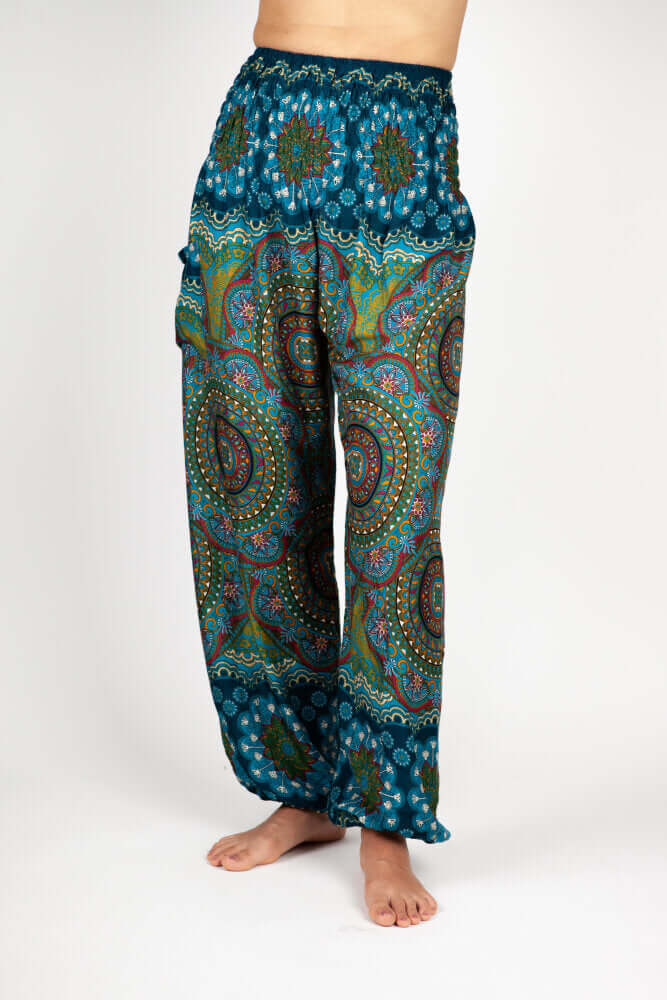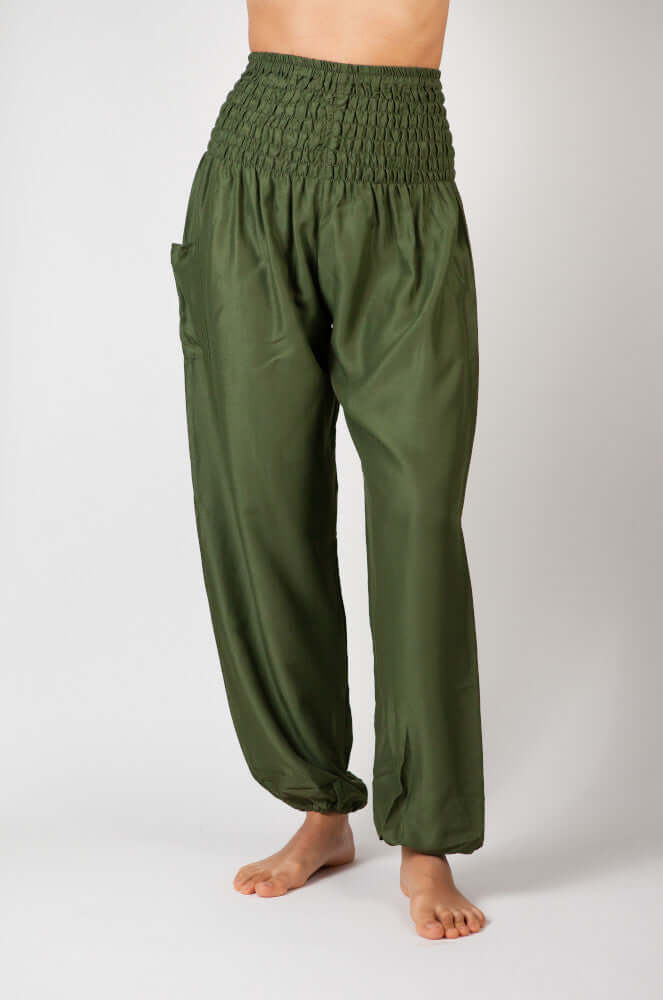
Inhaltsverzeichnis
Hausmittel & selbst gemachtes Waschmittel – sinnvoll oder schädlich?
Aus ökologischer Perspektive gibt es einige Argumente, die für selbst gemachtes Waschmittel sprechen. Zum Beispiel, dass weniger Plastik verschwendet wird und nur Inhaltsstoffe zum Einsatz kommen, die man sich selbst ausgesucht hat. Leider gibt es aber auch Argumente, die gegen die Verwendung von hausgemachtem Waschmittel sprechen. Welche das sind und was wir daraus schließen können, erfährst du hier.
Warum sollte man Waschmittel selber machen wollen?
Wer bewusster und nachhaltiger leben möchte, beginnt eigene Gewohnheiten zu hinterfragen. Dazu gehören zum Beispiel Ernährungsweisen, Konsumverhalten oder eben auch Putz- und Waschgewohnheiten.
Es ist offensichtlich, dass bei der Herstellung von handelsüblichen Waschmitteln viel Plastik verwendet wird. Neben dem Verpackungsmüll sprechen auch häufig verwendete, gefährliche Chemikalien gegen die Nachhaltigkeit von Waschmitteln. Viele Waschmittel sind nicht vollständig biologisch abbaubar. Stellt man Waschmittel stattdessen selbst her, kann man eigens bestimmen, welche Zutaten letztendlich ihren Weg in das Produkt finden. Dadurch kann man beispielsweise auch sicherstellen, dass sich im Endprodukt keine tierischen Inhaltsstoffe befinden. Zusätzlich spart man sich Geld und Verpackung.
Ein weiterer Grund dafür, auf eine do-it-yourself-Variante (“DIY”) umsteigen zu wollen, können allergische Reaktionen sein, die konventionelles Waschmittel manchmal auf der Haut auslösen.
Wie wird DIY-Waschmittel hergestellt?
Zuhause hergestelltes Waschmittel ist schnell gemacht und besteht nur aus wenigen Zutaten (die natürlich beliebig erweiterbar sind). Kernkomponenten sind dabei Waschsoda, geraspelte Kernseife und Wasser. Meist werden ätherische Öle hinzugegeben, um dem Waschmittel eine persönliche Duftnote zu verleihen. Hinzu kommen dann manchmal noch, je nach Rezeptur, Zitronensäure, Essig oder Spiritus. Ist die Mischung im richtigen Verhältnis angerührt, erhitzt worden und anschließend abgekühlt, wird sie in ausgediente Waschmittel-Behältnisse oder ein Gefäß mit Schraubdeckel gefüllt. Das Gute daran ist, dass solche Behältnisse immer wieder verwendet werden können – Plastikmüll wird vermieden.
Das eigens hergestellte Waschmittel wird anschließend, wie gewohnt, vor dem Waschgang in das Waschmittelfach gefüllt.
Wer nun daran interessiert ist, selbst Waschmittel herzustellen, findet durch ein schnelles Googlen viele verschiedene Rezepturen mit detaillierten Mengenangaben und Zubereitungshinweisen.
Neben selbstgemachtem Waschmittel gibt es aber auch noch einige Hausmittelchen, die für sich genommen hilfreich beim Waschen sein können und deine Lieblingshosen oder -oberteile wieder erstrahlen lassen.
3 Hausmittel zum Waschen, die du garantiert zuhause hast
1. Verblasste Farben wieder aufblühen lassen mit Salz und PfefferVielleicht kommt Salz bei dir im Haushalt bereits als Erste-Hilfe-Mittel gegen Flecken zum Einsatz. Zum Beispiel bei Rotwein. Salz, so wie auch Pfeffer, eignen sich aber auch um Seifenreste, die in den gewaschenen Textilien verbleiben, herauszuspülen. Diese Seifenreste führen nämlich auf Dauer dazu, dass die Kleidung matter und weniger strahlend wird. Gib einfach einen Teelöffel Salz und/ oder (gemahlenen) Pfeffer direkt in die Waschmaschine hinein und wasche deine Wäsche anschließend bei geringer Temperatur.
2. Grauschleier, nein Danke! Wo Backpulver helfen kannViele weiße Textilien verblassen mit der Zeit und erhalten einen Grauschleier. Und das, obwohl man sich darum bemüht, weiße und bunte Wäsche strikt zu trennen. Oftmals entsteht ein solcher Grauschleier durch Staub und Schmutz, der seinen Weg in die Waschmaschine gefunden hat. Auch hier kann ein Hausmittel helfen: Das in Backpulver enthaltene Natriumhydrogencarbonat reinigt Fasern porentief. Gib vor deiner nächsten Wäsche einfach ein Päckchen Backpulver in die Waschtrommel. So wird deine weiße Wäsche wieder strahlend weiß und lässt sie angenehm duften.
3. Reine, gut duftende Wäsche dank ZitronensaftZitronen enthalten nicht nur wertvolle Vitamine, sondern auch hilfreiche Zitronensäure. Diese wirkt wirksam gegen Schmutz und kann beispielsweise auch Kalk aus der Kleidung herausziehen. Daher eignet sie sich hervorragend als natürliches Reinigungsmittel. Ein weiterer Pluspunkt: Zitronen haben ein frisches Aroma und lassen deine Kleidung damit noch sauberer duften. Schneide einfach eine Zitrone in zwei Hälften und presse eine davon aus. Gib den Saft nun vor deinem Waschgang in die Waschmaschine. Bei starken Flecken auf deiner Kleidung kannst du den Saft auch direkt auf die Kleidung geben und ihn dort einwirken lassen.

Was spricht gegen selbstgemachtes Waschmittel?
DIY-Waschmittel steht trotz seiner vielen Vorteile immer wieder in der Kritik. Es soll langfristig Schäden an Kleidung UND Waschmaschine verursachen. Der größte Unterschied zwischen selbst hergestelltem Waschmittel und herkömmlichem Waschmittel ist dabei, dass DIY-Waschmittel auf die Wirkung von Seife setzt, während herkömmliches Waschmittel Enzyme und Tenside enthält. Diese entfernen schon bei geringen Temperaturen und Mengen Verschmutzungen aus der Wäsche.
Was aber ist nun das Problematische an Seife? Nach dem Waschgang befindet sich meist immer noch Seifenreste in der Kleidung; sie wird nicht komplett herausgespült. Wenn du Wäsche mit der Hand gewaschen hast, weißt du vielleicht, dass es viel Reibung, Zeit und Wasser bedarf, bis alle Seifenreste herausgespült wurden. Zusätzlich kann Kalkseife entstehen, wenn das Wasser sehr kalkhaltig ist. Das führt dazu, dass die Seife keine Reinigungswirkung mehr hat. Ein weiterer Punkt, der gegen Seife spricht, ist der, dass sich Seifen- bzw. Kalkseifenreste in der Kleidung sowie in der Waschmaschine einlagern und dabei Schmutz, Bakterien und Fette einschließen. Solche Ablagerungen beschädigen auf Dauer nicht nur die Textilien, sondern eben auch die Waschmaschine. Rechnet man also mit diesen Langzeitschäden, kann man argumentieren, dass DIY-Waschmittel auf Dauer nicht günstiger ist als herkömmliches Waschmittel.
Weil pro Waschgang bei selbstgemachtem Waschmittel nur relativ wenig Seife zum Einsatz kommt, wird auch argumentiert, dass die Wäsche nicht richtig sauber wird und sich Grauschleier bilden.
Um die Seifenreste beim Waschgang doch noch aus der Kleidung zu entfernen, wird häufig Essig zum selbstgemachten Waschmittel hinzugegeben. Die Kombination aus der Säure des Essigs und dem Metall der Waschmaschine sorgt jedoch leider dafür, dass sich die Lebenszeit der Waschmaschine deutlich verkürzt.
Fazit
Prinzipiell spricht nichts dagegen, selbstgemachtes Waschmittel beispielsweise für die Handwäsche zu nutzen, da die enthaltene Seife hier gründlich ausgespült werden kann. Außerdem muss man erwähnen, dass auch herkömmliche Waschmittel Ablagerungen in der Waschmaschine hervorrufen können. Daher sollte man die eigene Waschmaschine so oder so regelmäßig reinigen und ca. einmal pro Monat bei 60 Grad laufen lassen.
Zusätzlich reichen bei normalen Verschmutzungen ohne starke Flecken in der Regel schon das Wasser, die Wärme und die Reibung aus, um die Kleidung zu säubern. Die geringere Effektivität der (Kern-)Seife in DIY-Waschmittel spielt hier also gar keine so große Rolle.
Wer Hausmittelchen, wie Backpulver, Zitrone oder Salz verwenden möchte, kann das gerne tun. Allerdings sollte hier auf die Häufigkeit geachtet werden, mit dem die Lebensmittel zum Einsatz kommen, da die Salze und Säuren langfristig Schäden an der Waschmaschine hervorrufen können.
Im Endeffekt muss jede:r für sich entscheiden, ob er:sie Waschmittel selbst herstellen möchte, oder weiterhin herkömmliches Waschmittel verwenden möchte, um etwaige Risiken zu vermeiden.
Was man auf jeden Fall tun kann und sollte, ist, sich nach nachhaltigerem Waschmittel umzuschauen. Ökologisches Waschmittel sollte frei von Chlor, Phosphaten und Parabenen sein. Auch auf ein Umweltsiegel sollte man achten, um sicherzugehen, dass das Produkt frei von Mikroplasitk ist.
Wenn du noch mehr über Themen wie Umwelt & Nachhaltigkeit, Achtsamkeit, Familie und Schwangerschaft oder gesunde Ernährung erfahren möchtest, schaue dir hier spannende Blog-Artikel dazu an.




























Leave a comment
This site is protected by hCaptcha and the hCaptcha Privacy Policy and Terms of Service apply.